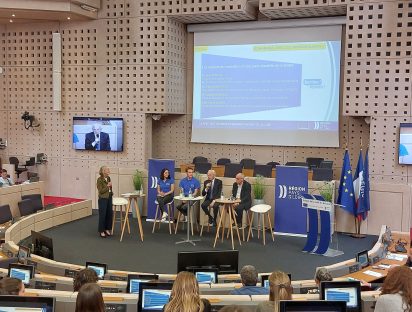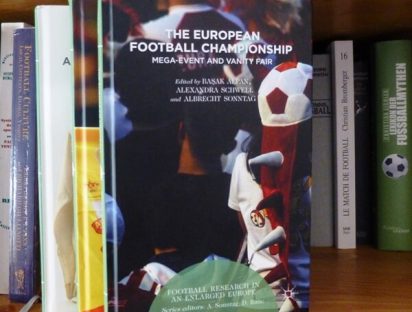For the seventeenth summer in a row, a group of thirty international students joined the Angers Summer Programme. What made their experience unique this year was the rather special atmosphere during their stay in France: on the one hand, the European football championship, hosted by France, spread a lot of enthusiasm. On the other hand, the results of the Brexit referendum in the UK diffused a sense of loss, worries and general instability. Mixed feelings shared by everybody.
The course in EU Studies has been therefore particularly meaningful for this group of young men and women with such a different cultural background, coming from very different places, like the Philippines and the US, Hong Kong or Australia, Mexico, Singapore and Taiwan. They had different motivations, but a common objective: they were keen to understand this part of the world.
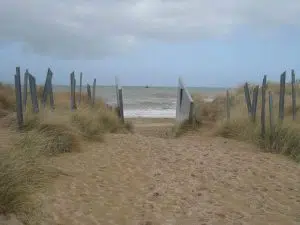
Juno Beach, photo by J. D. (Philippines).
The first step is to understand the very establishment of a European Community. There’s no better place to do this than the beaches of Normandy, where in June 1944 the liberation of continental Europe by the Allied forces began. The visit to Juno beach made students reflect on this terrible page of history, on those soldiers who died in order to free the European continent from the spectre of dictatorship. “Setting foot on the hallowed ground of Juno Beach was like stepping into history”, said N. S., from Australia. His fellow compatriot W. S. added: “As an Australian, we are famous for our beaches and weather which our culture is built on and which surround our childhood memories. However, at Juno beach there was an unescapable, unsettling feeling like no other beach I have visited before”.
Later on in the day, when walking through the American cemetary of Saint-Laurent-Colleville (also known as Omaha Beach), students were reminded of how many young lives were sacrificed in these battles.
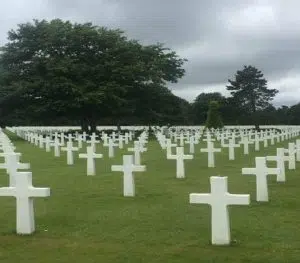
The American cemetery in Colleville (photo by M.H., USA).
“The memorials such as the one that we visited were constructed to help people remember the atrocities of war and to make sure that this will never happen again (…) This battlecry paved way to a unified Europe that eventually led to the formation of the European Union” (D.D., from Philippines)
True, at the outcome of the war, Europeans shared (for once) the same overall objective: to maintain peace. For that very purpose, the project of European integration was launched. This is something that, unfortunately, too often European citizens and politicians “forget” today.
As mentioned during a meeting in Brussels, three weeks later, it is indeed worrying that, while up to now we have asked ourselves how to improve the EU, today more and more people wonder if we actually do need the EU at all. W. S., from Australia, referring to our exchange of ideas with the journalist Jean-Sebastien Lefebvre, pointed out that “The message and perception of the EU has changed in the last 10 years. From ‘what kind of EU do we want’ to ‘Are we in or are we out?’ which in my opinion is an alarming message.”
The different atmosphere of the white American cemetery and the dark German one in La Cambe, certainly struck our minds. As pointed out by D. D., in the German site “The flag is not flown because the wargraves have been placed in memory of the individuals who fought in the war and NOT the institution and the ideals they fought for (…). Indeed, there is no winner in any kind of war; both sides suffer the consequences of their action”. S.E.S., from Mexico, added that “we must see everything from both sides, not just the winners’ side”.
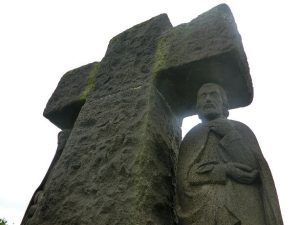
German cemetery in La Cambe (photo by L. W. Y., Hong Kong).
It is significant that the ‘never again principle’ seems so much more evident to these young extra-Europeans than to many of the same generation within Europe. “Walking through the graveyards of both the American and German soldiers who had paid the ultimate price brought to me the realisation of how successful and how necessary an institution such as the EU is for Europe.”, as N.S. from Australia put it, while M.P.G. from the Philippines concluded “We should be on guard to protect the peace and progress that we have managed to accomplish. May we never regress.”

